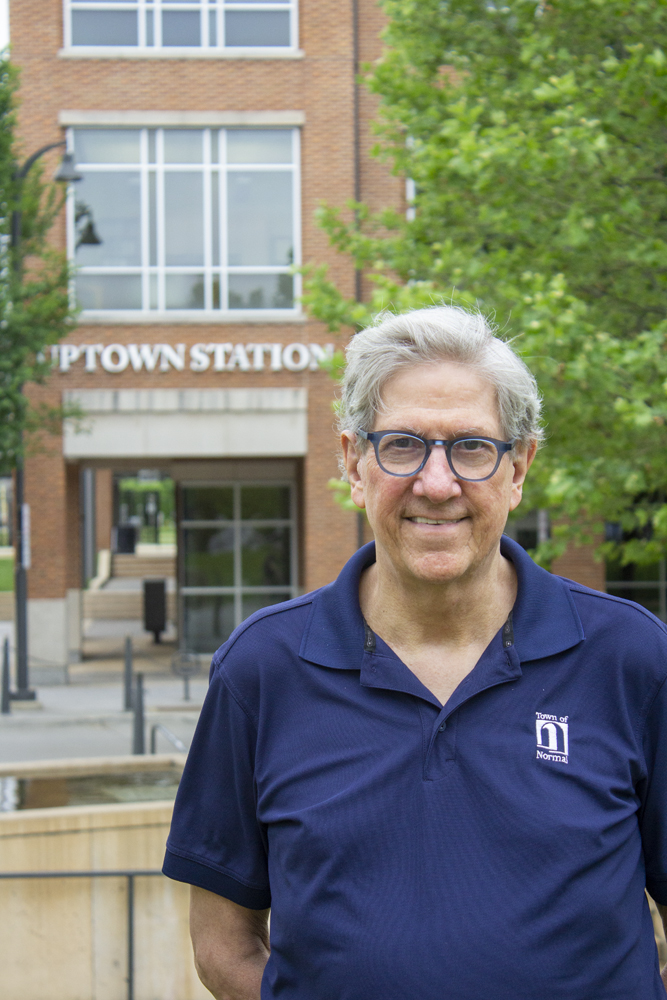
Since 2003, Normal, Ill., business owner Chris Koos has championed downtown development as mayor of the Midwest college town situated on Amtrak’s Chicago-St. Louis Lincoln Service route. He was nominated on Friday by President Joe Biden for a spot on Amtrak’s board of directors, the second time he has been nominated. President Donald Trump nominated Koos in May 2020, but that nomination was never confirmed by the Senate.
Koos was interviewed by Trains passenger correspondent Bob Johnston in June 2020 at Normal’s Uptown Station, a transportation hub opened in 2012 which also serves as the city hall and council chambers. That interview, conducted in the midst of the COVID-19 pandemic, was printed in the September 2020 issue of Trains Magazine. It is offered online here for the first time.
Q: How did you get interested in passenger rail?
A: It’s always been a part of this Bloomington-Normal community. As a little kid, we’d take my grandfather to the Gulf, Mobile & Ohio train station, he’d take the train to Florida, and we’d be there to pick him up. My father worked in the Chicago & Alton Railroad shops as a cabinet maker, then became a remodeling contractor after that.
If you look at passengers riding the train to and from Normal today, they span the whole socioeconomic and demographic range. People like Amtrak for its convenience — it’s about 21/2 hours to both Chicago and St. Louis. That includes my brother, who runs the nationally accredited local history museum here.
Q: What has been the impact of Uptown Station?
A: Since the $46 million multimodal facility with city hall offices upstairs opened in 2012, replacing the small
station across the tracks, the building and its adjacent plaza have become the new heart of Normal. It acts as a hub for not only Amtrak but intercity buses to Peoria and Springfield, Ill., and Connect Transit, the reinvented local bus system with seven routes that typically handle 470,000 passenger trips per year.
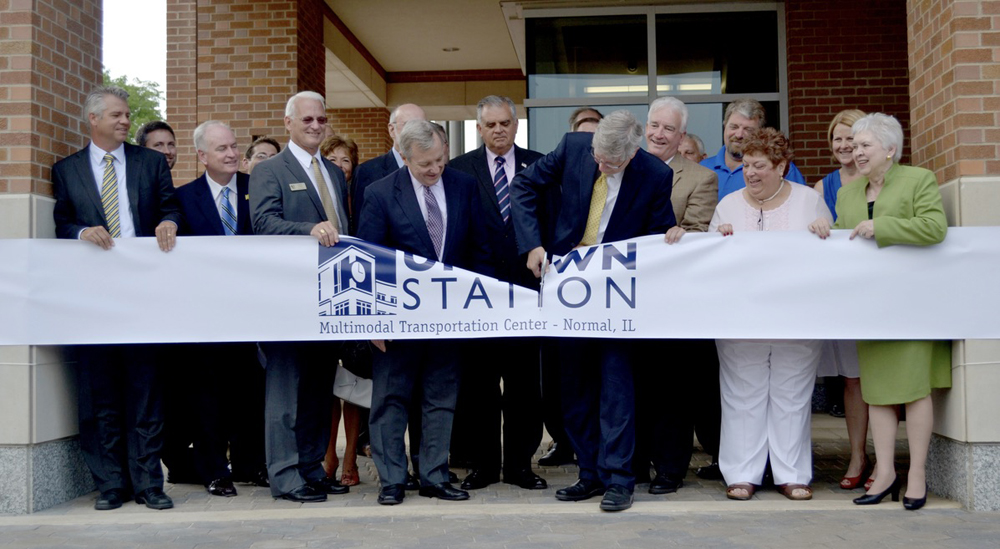
Uptown Station has helped shift development from the town’s perimeter to what has become a vibrant downtown with shops, restaurants, two hotels, a 40,000-square-foot conference center, two parking garages, and the Children’s Discovery Museum just across the circle. Groups now come here for meetings because we’re centrally located in the state; many people come on the train and walk across the street to their hotel.
Q: What experience do you have riding Amtrak trains?
A: When our city manager and I took the Texas Eagle to San Antonio to speak at a Great American Stations program, all along the route we talked to passengers getting on and off who were using it for shorter destinations. That’s an important part of Amtrak’s mission, in my opinion, to serve these rural communities. I do know the direction going for Amtrak right now — including the Amtrak board — is to severely curtail or eliminate the long-distance routes. I think there is a lack of understanding. They’re looking at numbers, but the number of communities in the Midwest that benefit from those long-distance trains is really overlooked. If I go forward, I will be a strong voice for the long-distance trains; they are critical.
Q: Applying lessons you learned as a Normal bicycle shop owner for 42 years, what advice would you give Amtrak management?
A: Trying to get the “where the trains go” message out is really important. My sense of it is you’ve got to run Amtrak like any business; that means you’ve got to sell it, market it, and have a quality product. If frequencies are reduced and it’s not convenient, people will stop using it — the same as any service. If it’s difficult to access,
people aren’t going to do it. Prior to COVID-19, you couldn’t always expect to buy a same-day ticket — Amtrak was so busy, if you didn’t book four or five days in advance, you weren’t getting on.
Q: So what is most important?
For passenger rail — to me — it’s frequency and on-time performance. Everybody talks high speed, but that’s way down on the list as far as I’m concerned. If you can do reliable [on-time performance] with a reasonable amount of frequency, people are going to use it. A Vancouver, B.C., transit planner speaking at a U.S. Council of Mayors conference in Seattle explained how their ridership exploded on the city’s regional bus system when it was upgraded with newer buses, Wi-Fi, coffee service, and more trips because it was convenient, comfortable, and enticing. And I think that would be my long-term look at what we should be doing with Amtrak.
Q: Can the Lincoln Service corridor be improved?
A: If I have a business meeting in Chicago at 9 a.m. and there is a train that can get me there by 8:30 a.m., I need to know that the train will be on time. We heard we would get an earlier train like that [the earliest arrival is now 10 a.m.]; there’s a big hole mid-afternoon, and a later train would be ideal. Early on, the thought was to go with six Lincoln Service round trips per day [plus the Texas Eagle] instead of four. I think that’s on the back burner somewhere because I don’t hear about that anymore. But the budget issues facing all of us now are a big unknown.
I think the state is really going to suffer on income taxes because so many people are out of work. Anecdotally — what’s going on in our community — is that stores that were open were doing a landslide business so there will likely be an early bump over [previous] sales projections down 30%. I don’t think they will be down that much.






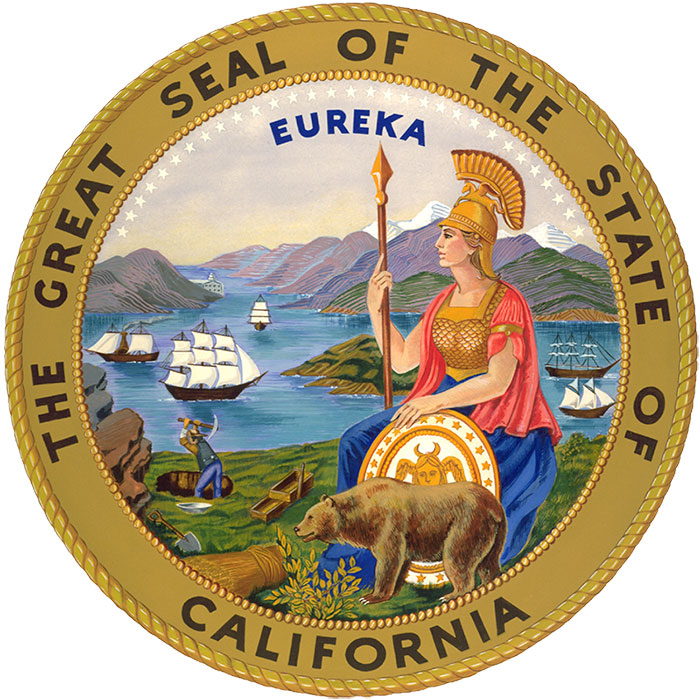
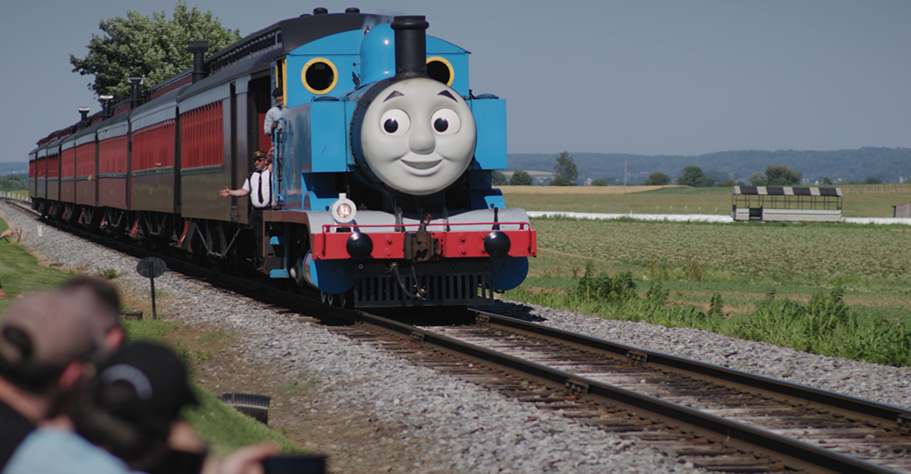
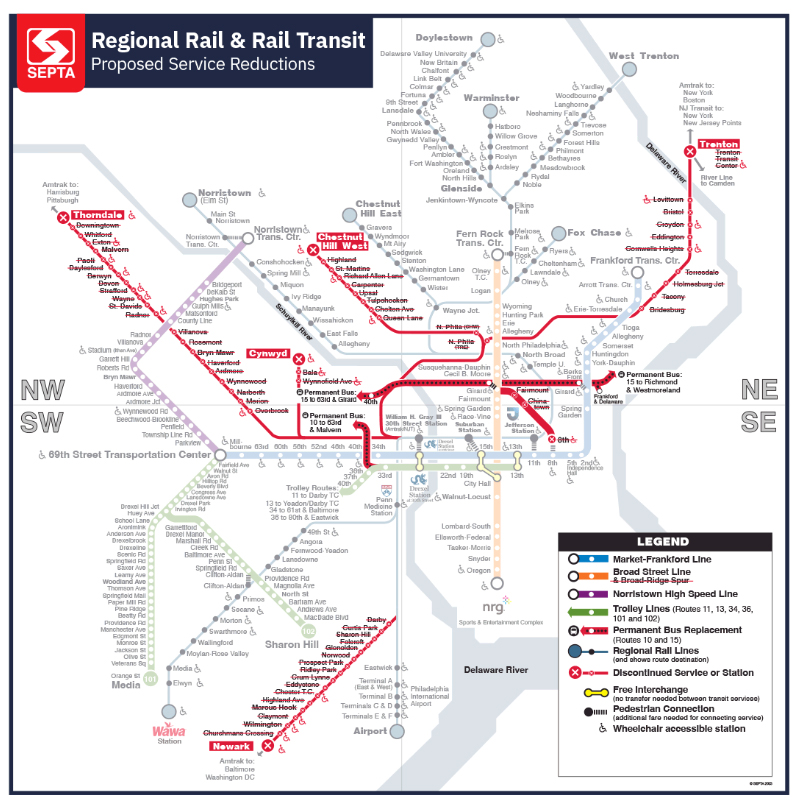




This is key for me:
“it’s frequency and on-time performance. Everybody talks high speed, but that’s way down on the list as far as I’m concerned. If you can do reliable [on-time performance] with a reasonable amount of frequency, people are going to use it.”
I agree Joe. On time performance and frequency will require infrastructure investment. I hope Amtrak and the states use this new funding from the Biden administration wisely.
Chris Koos seems like a very good choice, not only for the Amtrak board, but also as its chairman. He’s from middle America, both geographically and life experience. Of course, he (like me) coming from a GM&O family is a plus.
Good luck with Mayor Koos taking the Chairmanship away from Anthony Coscia. Coscia and apparently a few others (Biden, FRA administrator Amit Bose, SecTrans Buttigieg?) think the position is Coscia’s birthright.
At least here, at last, we have an Amtrak Board nominee in Mayor Koos who articulates a proper role for the long-distance network. I will strongly support him.
The remaining Biden appointments range from profoundly disappointing in the case of current Board Chair Coscia to interesting with repect to David Caposi (who should strongly advocate for special needs ridership) to unknown otherwise. Coscia is the co-author with the departed Richard Anderson and current CEO Stephen Gardner of the systematic attack on the national network. How can the Biden team not recognize that 2010-2022 is long enough for Coscia on the Board? With all due respect advocates can not support Mr. Coscia’s reappointment.
More of concern is that there is no element other than the one nomination of Mayor Koos, of the regional (out of the NEC) balance called for in the Amtrak law. Nor is there anyone (as we Amtrak supporters at least dreamed of seeing) from the Amtrak support/advocacy community, nor (as ever) anyone with any history/experience in actually selling passenger rail–in actually marketing the product. Indeed unless we consider Coscia and Gardner as rail-savvy, there is no one with any real rail experience either.
This comment comes from a Biden supporter: This list is not inspiring–and seems like yet another round of at best corridor-centric nominees.
I hope to be found wrong–but this certainly is NOT a list of persons qualified by any direct rail passenger operational or marketing expertise, unless we accept that Chairman Coscia learned positive lessons from the tri-quad weekly debacles and/or from the folly of consist(s) restraints, no real meals for 80% of riders and no meaningful advertising for the long-haul network in years. The continued absence of SILVER METEOR and the inconceivable stupidity of running the SOUTHWEST CHIEF with only one sleeper as the summer rush approaches, and the on-going denial of dining car service to coach passengers proves he did not!
Given the recent history of GOP nominees being drawn from defeated ex-Congressmen with anti-national network voting records, we must none-the-less hope for better from them now–given that the nominees will come from the relatively supportive GOP Senate leadership. In the Congressional trenches passenger rail retains substantial cross-party support.